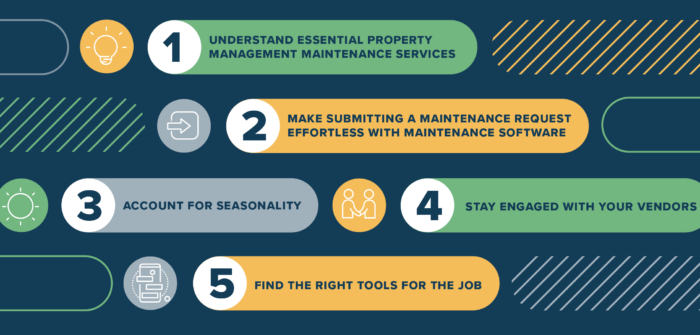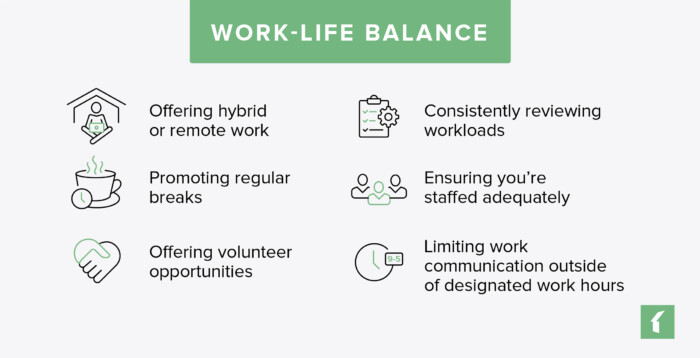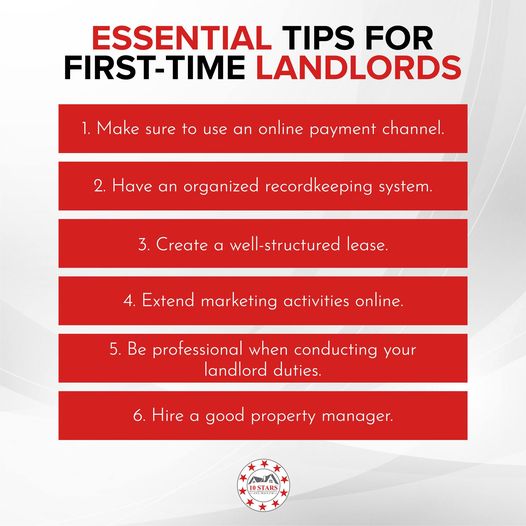Discover the top 5 must-know secrets for new property managers guaranteed to streamline operations and boost success in managing properties.
 Image courtesy of Black ice via Pexels
Image courtesy of Black ice via Pexels
Table of Contents
Introduction to Property Management
Welcome, new property managers! As you embark on your journey into the world of property management, it’s essential to understand the best practices that can make your experience effective and rewarding. Managing a rental property comes with a unique set of challenges and responsibilities, but with the right tips and strategies, you can navigate this role successfully.
Property management best practices are crucial for ensuring that both you and your tenants have a positive experience. By following these tips for property managers, you can create a harmonious environment where tenants feel valued, and properties are well-maintained.
Understanding Your Responsibilities
As a new property manager, it’s crucial to understand your responsibilities to ensure the effective management of rental properties. By taking on this role, you become the main point of contact for tenants and must address their needs promptly and efficiently.
Being the Point of Contact
One of your primary responsibilities as a property manager is being the main person tenants reach out to for help or questions. You serve as the bridge between the property owner and the tenants, ensuring that communication flows smoothly and issues are resolved promptly.
Maintenance and Repairs
Maintaining the property and addressing repair issues promptly are essential responsibilities of a property manager. Regular upkeep not only ensures the safety and comfort of tenants but also helps preserve the value of the property in the long run. By being proactive in addressing maintenance and repair needs, you can prevent small issues from escalating into larger problems.
Building Relationships with Tenants
Building strong relationships with your tenants is crucial for effective rental management. When tenants feel valued and respected, they are more likely to communicate openly and adhere to the rules of the property. Here are some tips on how to cultivate positive relationships with your tenants:

Image courtesy of via Google Images
Communication is Key
Effective communication is the cornerstone of a good relationship with your tenants. Make sure to keep them informed about any changes, upcoming maintenance tasks, or policy updates. Encourage them to reach out to you with any questions or concerns they may have.
Respecting Privacy
Respecting the privacy of your tenants is essential in maintaining a good relationship. Always provide proper notice before entering their unit for inspections or repairs. It’s important to establish boundaries and show respect for their personal space.
Managing Financials
As a property manager, one of your key responsibilities is managing the financial aspects of the rental property. This involves collecting rent from tenants, budgeting for expenses, and ensuring the property remains profitable. Let’s dive into some essential tips for effectively managing the financial side of property management.
Rent Collection Methods
When it comes to collecting rent from tenants, there are several methods you can use. The most common way is to have tenants pay by check or online through a payment portal. This method offers a paper trail and is convenient for both parties. Another option is to set up automatic bank transfers, where rent is deducted directly from the tenant’s account each month. This can ensure timely payments and reduce the chances of late fees.
Budgeting for Expenses
It’s crucial to create a budget for the property to cover both expected and unexpected expenses. Start by estimating your monthly income from rent and then list out all the regular expenses such as maintenance, repairs, insurance, and property taxes. Set aside a portion of the income for a rainy day fund to cover any unforeseen emergencies like a burst pipe or a broken appliance. By budgeting wisely, you can ensure the financial stability of your rental property.
Staying Organized
Being organized is a crucial skill for property managers to ensure that everything runs smoothly. By keeping records and managing time effectively, you can stay on top of your responsibilities and provide the best service to your tenants.
Record Keeping
As a property manager, you will need to keep track of various records such as lease agreements, maintenance requests, rental payments, and communication with tenants. Maintaining accurate records is essential for legal compliance, financial tracking, and resolving disputes. Remember, good record-keeping can save you time and protect you in case of any issues that may arise.
Time Management
Effective time management is key to being a successful property manager. With multiple tasks to juggle, such as property inspections, rent collection, and tenant communication, it’s important to prioritize your duties and allocate time efficiently. Consider using tools like calendars or property management software to help you stay organized and on top of your responsibilities.
Legal Knowledge
Understanding the legalities involved in leasing and managing rental properties is crucial for new property managers. Let’s delve into the essential legal knowledge you need to ensure effective rental management.
Lease Agreements
One of the fundamental aspects of property management is the lease agreement. This document outlines the terms and conditions of the rental agreement between you as the property manager and the tenant. It is essential to include important details such as the duration of the lease, rent amount, security deposit requirements, and any rules or restrictions associated with the property. A well-drafted lease agreement helps protect both parties and sets clear expectations for the tenancy.
Tenant’s Rights
As a property manager, it is crucial to understand and respect the rights of tenants. Tenants have legal rights that protect them from discrimination, ensure a habitable living environment, and establish procedures for eviction. It is important to be familiar with these rights to avoid any legal issues and maintain a positive relationship with your tenants. By recognizing and upholding the rights of tenants, you can create a harmonious and legally compliant rental experience for all parties involved.
| Tip # | Tip Description |
|---|---|
| 1 | Establish open communication with tenants to address any issues promptly |
| 2 | Have a thorough screening process for potential tenants to ensure reliable renters |
| 3 | Regularly inspect properties to identify maintenance needs and address them in a timely manner |
| 4 | Keep detailed records of all financial transactions and maintain accurate budgeting |
| 5 | Stay updated on all relevant landlord-tenant laws and regulations to avoid legal issues |
Handling Difficult Situations
As a property manager, you may encounter challenging situations that require careful handling. Here are some tips to help you navigate through difficult circumstances effectively.
 Image courtesy of via Google Images
Image courtesy of via Google Images
Dispute Resolution
When faced with disagreements or conflicts, it’s essential to approach them with a calm and fair mindset. Listen to both parties involved, understand their perspectives, and aim to find a middle ground that satisfies everyone. Clear communication and empathy can often help resolve disputes amicably.
Eviction Process
If a tenant consistently fails to pay rent or breaches the terms of their lease agreement, you may need to initiate an eviction process. This involves following legal procedures, providing proper notices, and seeking guidance from legal professionals if necessary. Evictions should always be handled with care and in compliance with local laws to avoid any legal repercussions.
Regular Property Inspections
In order to ensure your rental property stays in top condition and to address any issues promptly, conducting regular property inspections is crucial. By scheduling regular inspections, you can spot potential problems early on and prevent larger issues from arising.
Scheduling Inspections
When it comes to scheduling property inspections, it’s important to find a balance between being thorough and respectful of your tenants’ privacy. Notify your tenants in advance of the inspection date and time, providing them with a reasonable window for when you or your team will be conducting the inspection. This allows your tenants to prepare and ensures a smooth and efficient inspection process.
Dealing with Findings
During the inspection, if you come across any maintenance issues or concerns, it’s essential to address them promptly. Take detailed notes of any findings and prioritize the repairs based on their urgency. Communicate with your tenants about the repairs that need to be made and coordinate with maintenance professionals to resolve the issues in a timely manner. By staying on top of maintenance and repairs, you can provide a safe and comfortable living environment for your tenants while protecting the value of your rental property.
Keeping Up with Trends
As a new property manager, it’s crucial to stay in the loop with the latest trends in rental property management. By keeping up with these trends, you can ensure that you’re providing the best service possible to your tenants and staying ahead in the competitive property market.
 Image courtesy of via Google Images
Image courtesy of via Google Images
Market Trends
Understanding current market trends is essential for successful property management. By staying informed about market conditions, you can make informed decisions about setting rental prices, attracting tenants, and making strategic investments in your properties. Whether it’s knowing when to adjust rent prices based on market demand or predicting which neighborhoods are up-and-coming, being aware of market trends can give you a competitive edge as a property manager.
Technology in Property Management
Technology has revolutionized the way property managers operate, making tasks more efficient and improving tenant experiences. From online rent payment portals to property management software that streamlines administrative tasks, embracing technology can help you work more effectively and provide better service to your tenants. By incorporating the latest technological tools into your property management processes, you can save time, reduce errors, and stay organized with ease.
Conclusion
As you embark on your journey as a new property manager, remember that effective rental management is built on a foundation of understanding, communication, organization, and legal knowledge. By following the five essential tips outlined in this article, you can set yourself up for success in managing rental properties.
Building strong relationships with your tenants, staying on top of maintenance and financials, keeping detailed records, understanding legalities, and conducting regular property inspections are all key components of being a successful property manager. By applying these practices consistently, you can create a positive experience for both yourself and your tenants.
Remember, being a property manager comes with its challenges, but with dedication, diligence, and a willingness to learn, you can overcome any obstacles that come your way. Use the advice provided in this article to guide you through difficult situations, handle disputes professionally, and keep up with industry trends to stay ahead of the game.
Ultimately, being a property manager is a rewarding and fulfilling role that allows you to make a positive impact on the lives of others. Embrace the responsibilities that come with the job, and always strive to provide the best possible experience for your tenants. With determination and a commitment to excellence, you can excel in the field of property management.
FAQs
What are the first steps to take as a new property manager?
As a new property manager, the first steps to take involve understanding your responsibilities and the needs of your tenants. Familiarize yourself with the property you are managing, including its maintenance needs and any existing agreements with tenants. It’s essential to establish clear communication channels with your tenants to address any concerns or questions they may have.
How do you deal with tenants who break rules?
Dealing with tenants who break rules requires a fair and consistent approach. Start by reviewing the lease agreement to determine which rules have been violated and then communicate with the tenant about the issue. It’s important to provide clear expectations and consequences for rule-breaking while also exploring solutions to prevent future infractions. If the situation escalates, you may need to seek legal advice or take appropriate actions, such as issuing warnings or evictions.
What is the most challenging part of property management?
One of the most challenging parts of property management can be handling difficult situations effectively. From late rent payments to disputes between tenants, property managers must navigate various conflicts while maintaining professionalism and upholding legal obligations. Communication, problem-solving skills, and a strong understanding of legal rights and responsibilities are crucial in addressing these challenges efficiently and fairly.
